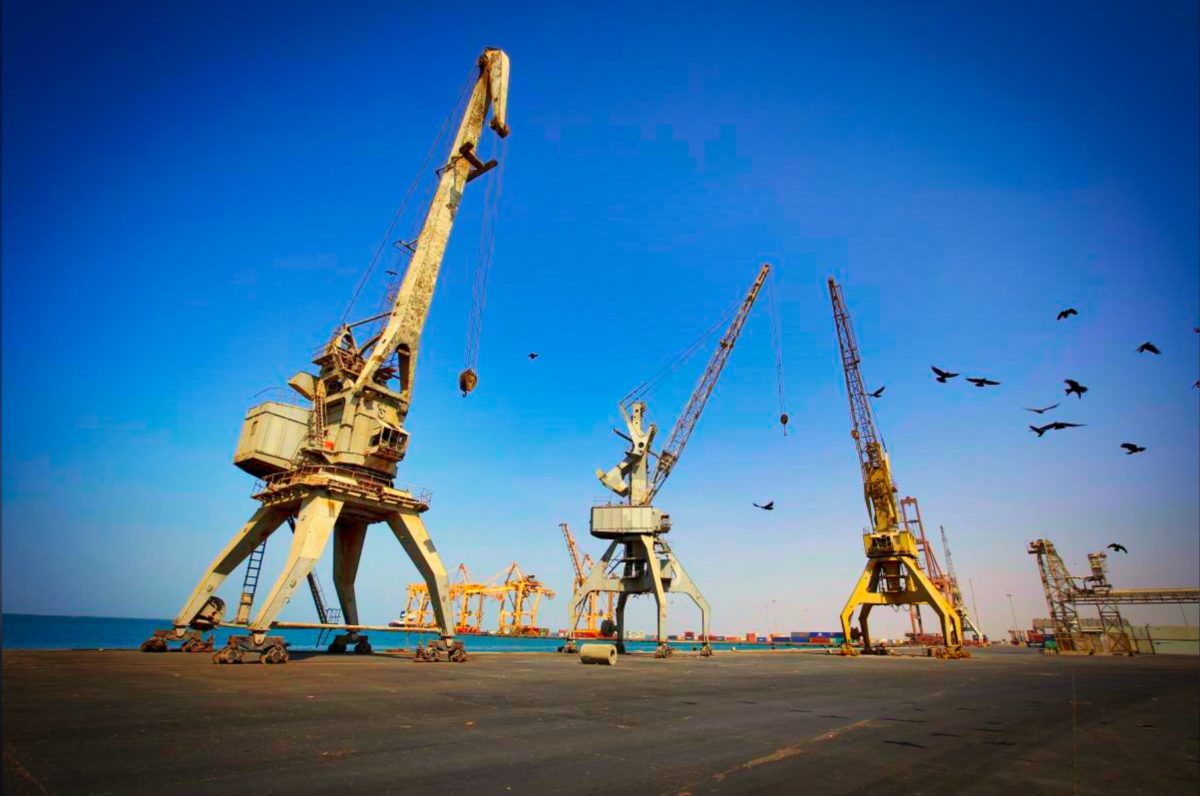U.S. Inbound Containers Surge to Start 2024
By Gavin van Marle (The Loadstar) – The main US ports enjoyed another stellar month in March, according to new figures from noted analyst John McCown His figures show imports at...


A view of cranes, damaged by air strikes, at the container terminal of the Red Sea port of Hodeidah, Yemen November 30, 2017. REUTERS/Abduljabbar Zeyad
by Mohammed Mukhashaf (Reuters) – The Saudi-led coalition fighting in Yemen said on Wednesday it would keep Yemen’s Houthi-controlled Hodeidah port open for a month, despite a fresh missile attack at Riyadh, but it kept up air strikes that killed at least nine people.
The Western-backed coalition, which controls Yemen’s airspace and port access, said last month it would allow humanitarian aid through Hodeidah following a nearly three-week blockade imposed because of a missile attack towards the Saudi capital’s international airport.


The Saudis say the Red Sea port, which is Yemen’s main entry point for food and humanitarian supplies, is also a hub used by the Iran-allied Houthi rebels to bring in weapons.
On Wednesday, the coalition confirmed it would keep access open to the port despite a further ballistic missile attack at Riyadh on Tuesday by the Houthis which Saudi forces also intercepted.
“Keen to maintain humanitarian aid to the brotherly Yemeni people and as a result of intensified inspection measures, the coalition command announces that Hodeidah port will remain open for humanitarian and relief supplies,” the coalition said in a statement carried by Saudi state news agency SPA on Wednesday.
The coalition said ships bringing in fuel and food would also be allowed to enter for another 30 days while proposals made by the United Nations envoy to Yemen were implemented, it added.
The agency did not elaborate on the proposals. But the coalition has been demanding that a U.N. inspection regime agreed in 2015 be further tightened to prevent weapons from reaching the Houthis.
Yemen’s almost three-year-old war opposes the Iran-allied Houthis, who control the capital Sanaa, against the Saudi-led military alliance, which backs the government now based in the southern port of Aden.
Iran and Saudi Arabia are regional rivals.
Tuesday’s missile attack came as the Houthis marked 1,000 days since the Saudi-led coalition intervened in the Yemen war in March 2015 to try to restore President Abd-Rabbu Mansour Hadi after a Houthi advance on his base in Aden forced him to flee.
More than 10,000 people have been killed and a humanitarian crisis unleashed in a conflict which has intensified since ex-President Ali Abdullah Saleh was killed on Dec. 4.
Coalition forces, which are supported by the United States and Britain, meanwhile launched fresh air strikes overnight.
Residents said at least nine members of the same family, including at least five children, were killed in one air strike which hit their home in Wadi Khair in southern Yemen’s Shabwa province.
Coalition aircraft have been providing air support for southern fighters and pro-government troops as part of a push to clear the Houthis from Shabwa and the family were killed in an apparently mistaken attack.
Residents also reported that coalition aircraft bombed a new parliament house, part of a government compound being built in Sanaa, causing damage but no casualties.
The coalition had no immediate comment on the report but says it does not target civilians.
Similar air strikes in which civilian homes, markets and hospitals were hit are recurrent in Yemen. On Monday, eight women and two children from the same family died when war planes struck a vehicle returning from a wedding party in Marib, east of Sanaa.
The coalition had accused Iran of sending the missile that was fired towards Riyadh in November, and the United States last week displayed what it said was evidence that it was provided by Iran. Tehran has denied the report.
The closure of Yemen’s ports and airports last month caused food and fuel shortages in a country already reeling from three years of war that has killed more than 10,000 people, displaced more than two million and caused a cholera epidemic that had infected some one million.
The coalition came under heavy international criticism, leading to the blockade being eased.
Reporting by Hesham Hajali and Mohammed Mukhashaf in Aden, writing by Aziz El Yaakoubi,; Editing by Sami Aboudi and Richard Balmforth, Reuters
Join the gCaptain Club for curated content, insider opinions, and vibrant community discussions.


Join the 105,917 members that receive our newsletter.
Have a news tip? Let us know.
Access exclusive insights, engage in vibrant discussions, and gain perspectives from our CEO.
Sign Up




Maritime and offshore news trusted by our 105,917 members delivered daily straight to your inbox.



Essential news coupled with the finest maritime content sourced from across the globe.
Sign Up